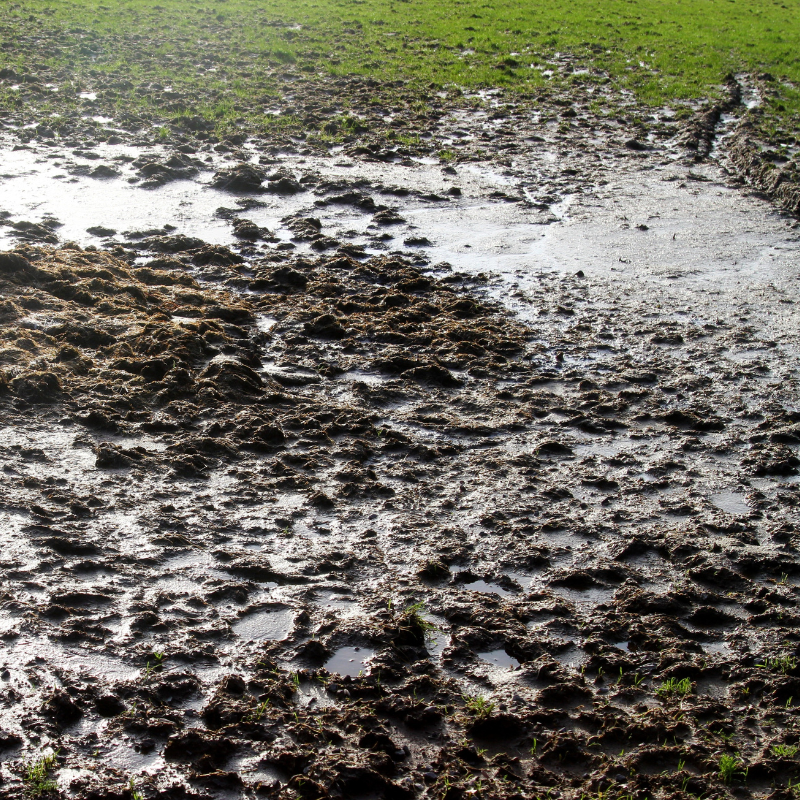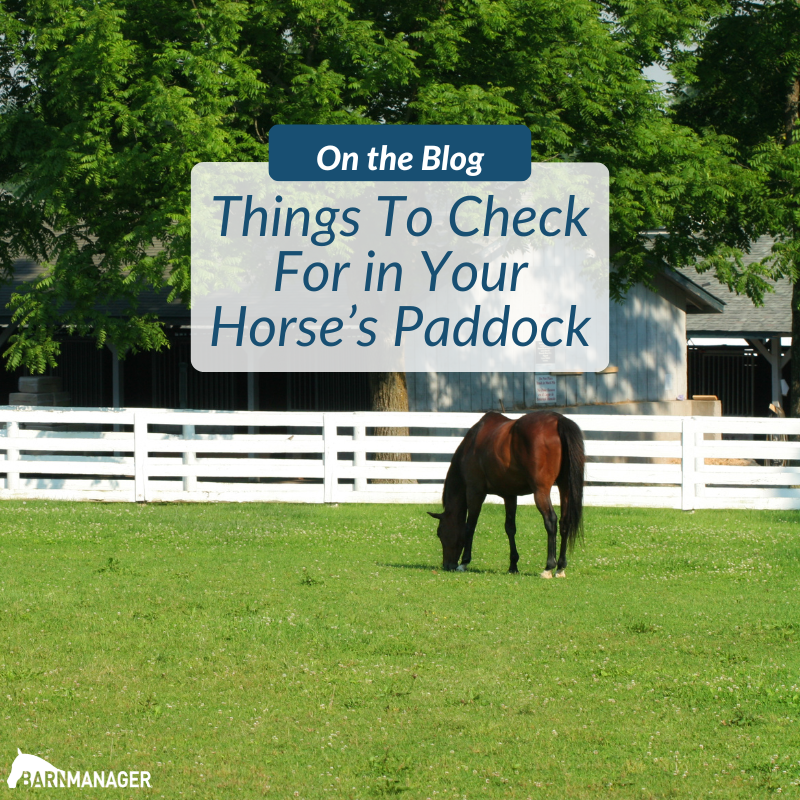Turning horses out is an important part of their everyday routine. During this time outside, horses can eat, graze, walk around, and just be horses. Since turnout is supposed to be a relaxing and enjoyable time for your horse, it is important to routinely inspect their paddock or field to ensure it is safe.
Holes
Holes in paddocks can be dangerous for horses and also difficult to notice from a distance. Large holes can definitely be a problem, although sometimes the smaller ones are actually more of a hazard. Holes that are large are easy for people to see and horses to avoid. The most dangerous holes are those that are hidden or smaller because horses can easily misstep into them and get injured. For this reason, it is best to walk your paddocks regularly searching for holes so they can be filled in. If you have grass paddocks, it helps to keep them mowed so holes are easier to see.
Fencing

Horses often itch on or lean over the fence boards in their paddock. This can lead to broken fence boards that are dangerous for several reasons. If a horse continues rubbing on a broken fence board, they could cut themselves on the splintered wood or an exposed nail. If any of the nails fall, there is the possibility that a horse could step on one. A broken fence board may also create a place where a horse could escape. To avoid these issues, make it a practice to walk the fence lines of your turnout areas frequently to examine them. Also, keep an eye out for rotting fence boards that could break and become a hazard.
Toxic Weeds
Toxic weeds can be a concern when your horse is turned out in a grass field. If you are unsure which weeds are toxic, check with a professional weed specialist. Horses are not always inclined to eat toxic weeds, but it is better to be on the safe side. Take good care of your pasture areas to prevent weeds from overtaking the grass. Your routine can include mowing frequently and rotating the fields that are used for turnout. Resting the grass, keeping it healthy, and giving it time to regrow will help keep weeds at bay.
Rocks
A rocky paddock is not ideal footing for a horse, especially if they are barefoot. If a horse steps the wrong way on a sharp rock, it can lead to a stone bruise. Depending on the location and terrain of the farm, it can be difficult to completely avoid rocks in paddocks. Instead, make it a habit to examine the turnout areas a couple of times a year and remove any large or sharp rocks that have surfaced. This can be a difficult task in large paddocks, so begin by focusing on the areas where the horses tend to stand the most. Most likely these areas will be by the gate and where there is food, water, or shade.
Weather

The weather during different seasons can affect the conditions of your paddocks. For example, ice can be a major issue in the winter. Icy areas can be dangerous for both the horse and the person who is walking the horse to the field. Rain is often problematic for paddocks in the spring, summer, and fall. A muddy paddock can be slippery and hazardous if your horse starts to play or run. There is also a higher chance of a horse pulling a shoe in the mud, which could lead to them accidentally stepping on a nail. Additionally, turning a horse out in a grass paddock after the rain can tear up the field, especially if the horse starts running. No matter the season, when possible it is best to avoid icy or wet paddocks for a little until they are thawed, dry, and safe.
Although pasture examination and maintenance might be a tedious and dull task at times, it is necessary to ensure that your horses are in a safe environment when they are in turnout so find a way to include it in your maintenance schedule throughout the year.
Have questions about utilizing BarnManager or want to give it a try for yourself? Request a live demo here!
